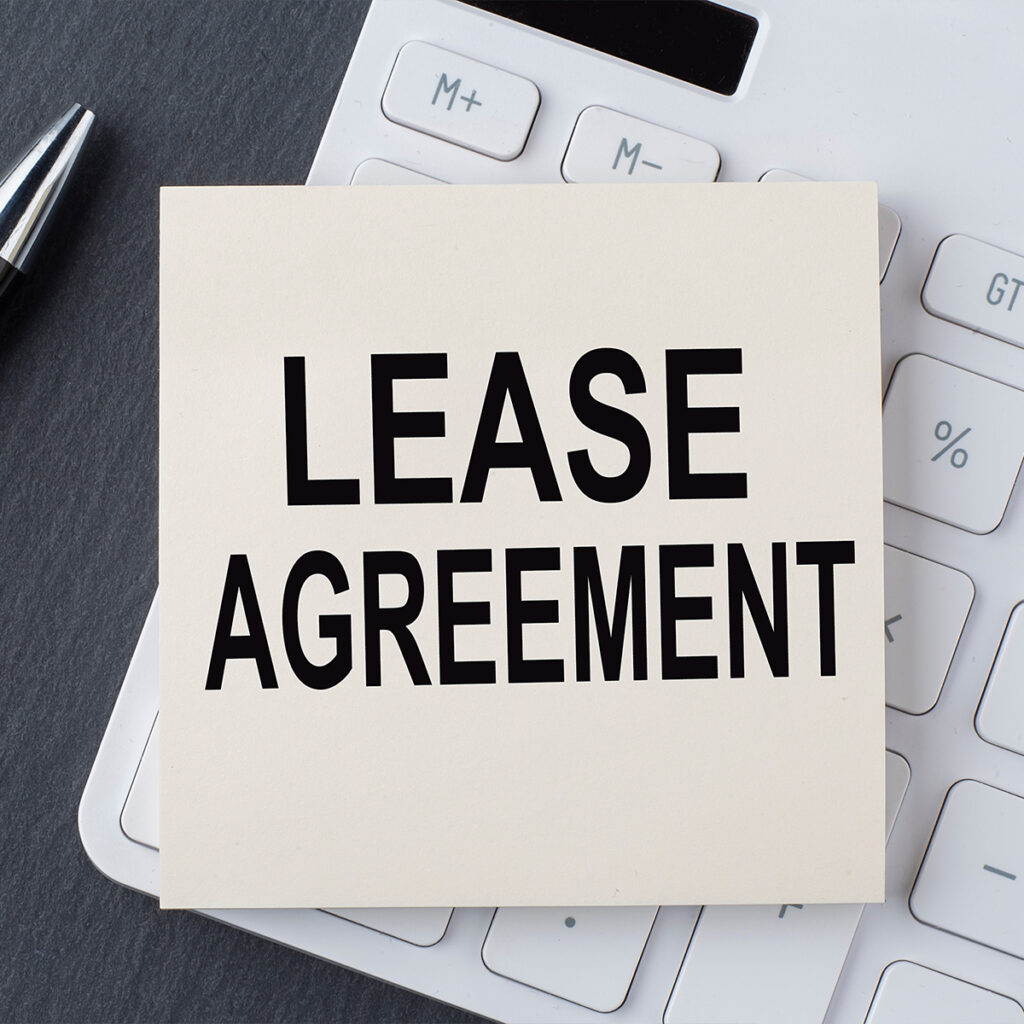As a property owner in Dubai, renting out your unit can be a profitable venture but only if you fully understand the legal framework that governs tenancy agreements. This comprehensive guide is tailored to landlords seeking clarity on lease types in Dubai and the contracts essential for safeguarding their investments.
Leasing a Property in Dubai
Leasing a property in Dubai as a landlord comes with great potential but also legal responsibilities. Before listing your unit, it’s important to understand the framework of property leasing, which includes tenant screening, contract drafting, and government registration. As this guide outlines, being knowledgeable about lease types, rent control regulations, and contract requirements can protect your investment and reduce risk.
So, let’s first take a look at different lease types in Dubai.
Lease Types in Dubai
When it comes to renting out property, understanding the various lease types in Dubai is essential for choosing the right arrangement for your property and tenant profile.
- Standard Annual Lease: This is the most common lease type, typically lasting 12 months and often renewable. It provides stability for both landlord and tenant.
- Short-Term Lease: Usually ranging from one month to six months, these are popular in areas with high tourist or transient populations. They offer flexibility but require frequent tenant turnover.
- Commercial Lease: Designed for office spaces, warehouses, and retail outlets, these leases often span multiple years and require adherence to specific commercial regulations.
- Sub-Lease: Involves a tenant renting out part or all of the leased property to another party. Sub-leasing is subject to the landlord’s prior written approval.
- Holiday Home Lease: Regulated by the Dubai Department of Tourism and Commerce Marketing (DTCM), these leases are short-term and geared toward tourists.
- Industrial Lease: Specifically for factories and large-scale production facilities, this lease type includes infrastructure-related clauses and zoning considerations.
Why does the type of lease matter? Because each one influences your rights as a landlord, especially in the context of renewals, notice periods, and rent adjustments.
Another important aspect of lease management involves understanding the Dubai lease contract rent increase rules. The Real Estate Regulatory Agency (RERA) stipulates strict regulations on how and when rent can be increased.
For instance, landlords must provide at least 90 days’ notice before the lease expiry date and ensure the increase falls within the RERA rental index limits.
Tenancy Contracts in Dubai
Tenancy contracts in Dubai serve as legally binding agreements between landlords and tenants, outlining the terms and conditions of the lease. Governed by the RERA, these contracts must include specific clauses such as the rental amount, duration of a lease, payment schedule, and maintenance obligations.
Both parties are protected under Dubai’s tenancy law, which ensures fair treatment and dispute resolution. Additionally, all tenancy contracts must be registered with the Ejari system to be recognized by government authorities, reinforcing transparency and legal enforceability.
Types of Tenancy Contracts in Dubai
An essential aspect of any Dubai tenancy contract guide is understanding the various types of tenancy agreements landlords can choose from. What kind of contract best aligns with your property’s purpose and tenant profile? Each type serves a specific purpose and comes with distinct regulations and expectations. The main types include:
- Residential Tenancy Contracts: These are the most common and are used for renting apartments, villas, and other residential properties to individuals or families on a long-term basis.
- Commercial Tenancy Contracts: Designed for leasing office spaces, retail outlets, restaurants, and other commercial units. These contracts often include terms tailored to business operations.
- Industrial Tenancy Contracts: Intended for leasing warehouses, factories, and other industrial facilities. They typically address infrastructure, utility capacities, and zoning compliance.
- Labour Accommodation Contracts: These are for housing large groups of workers and are usually signed by companies or labor supply firms.
- Holiday Home Contracts: Regulated by the Department of Tourism and Commerce Marketing (DTCM), these contracts cater to short-term rental of furnished homes to tourists.
- Staff Accommodation Contracts: Used by businesses to provide housing for employees, usually in bulk and often for long durations.
Regardless of type, every tenancy contract in Dubai must adhere to the RERA-mandated template, outlining essential terms like rent amount, payment frequency, and duration. To avoid future disputes, ensure your lease clearly states maintenance responsibilities and renewal terms. This is where a well-structured Dubai tenancy contract guide becomes invaluable.
Other Key Considerations for Dubai Landlords
Staying up to date with local property laws and rental regulations can prevent potential legal conflicts and maintain tenant satisfaction. Here are some additional considerations that every Dubai landlord should keep in mind.
Don’t Forget Ejari Registration
No lease is legally binding in Dubai without Ejari registration. Wondering how to register landlord Ejari in Dubai? The process is simple: log into the official Ejari portal, upload the required documents, pay the registration fee, and download your Ejari certificate. This step protects both landlord and tenant by legally recording the lease agreement with Dubai’s Land Department.
Navigating Rent Increases in Dubai
One of the most common concerns landlords have is about the Dubai lease contract rent increase rules. These rules exist to create balance in the rental market and prevent sudden, excessive hikes. According to the RERA Rental Index, increases are only permitted if the current rent is significantly below the average market rate. Make use of the RERA Rental Calculator to determine your eligibility for a rent raise.
Lease Renewal and Termination
Lease renewal is usually straightforward, but it requires timely communication and agreement on new terms. If you intend to change any lease terms or not renew, provide notice at least 90 days before the lease ends. On the other hand, termination before contract expiry must be backed by legal justification or mutual agreement.
In your tenancy guide, be sure to include a section on termination clauses, notice periods, and the process for recovering security deposits. These are often the most contentious issues between landlords and tenants.
Key Takeaways
Being a landlord in Dubai involves more than just collecting rent. It’s about navigating a legal landscape that protects both parties. From understanding lease types in Dubai to adhering to Ejari regulations, a proactive approach will not only protect your assets but also improve tenant relationships.
FAQs
What are the main lease types in Dubai?
Residential, commercial, short-term, and sub-leases are the main lease types in Dubai.
Is Ejari registration mandatory for all rental agreements?
Yes, all rental agreements must be registered through Ejari to be legally valid.
How can landlords increase rent legally in Dubai?
Refer to the Dubai lease contract rent increase rules and use the RERA Rental Index to justify any changes.
Where can I find a reliable Dubai tenancy contract guide?
Official sources such as RERA and the Dubai Land Department provide updated and reliable guides.
What documents are needed to register as a landlord on Ejari?
A copy of the tenancy contract, Emirates ID, title deed, and DEWA bill are typically required. Follow the official steps for how to register landlord Ejari Dubai.
What should be included in a comprehensive tenancy guide?
Key clauses, notice periods, responsibilities, renewal terms, and legal procedures for disputes should all be covered.









